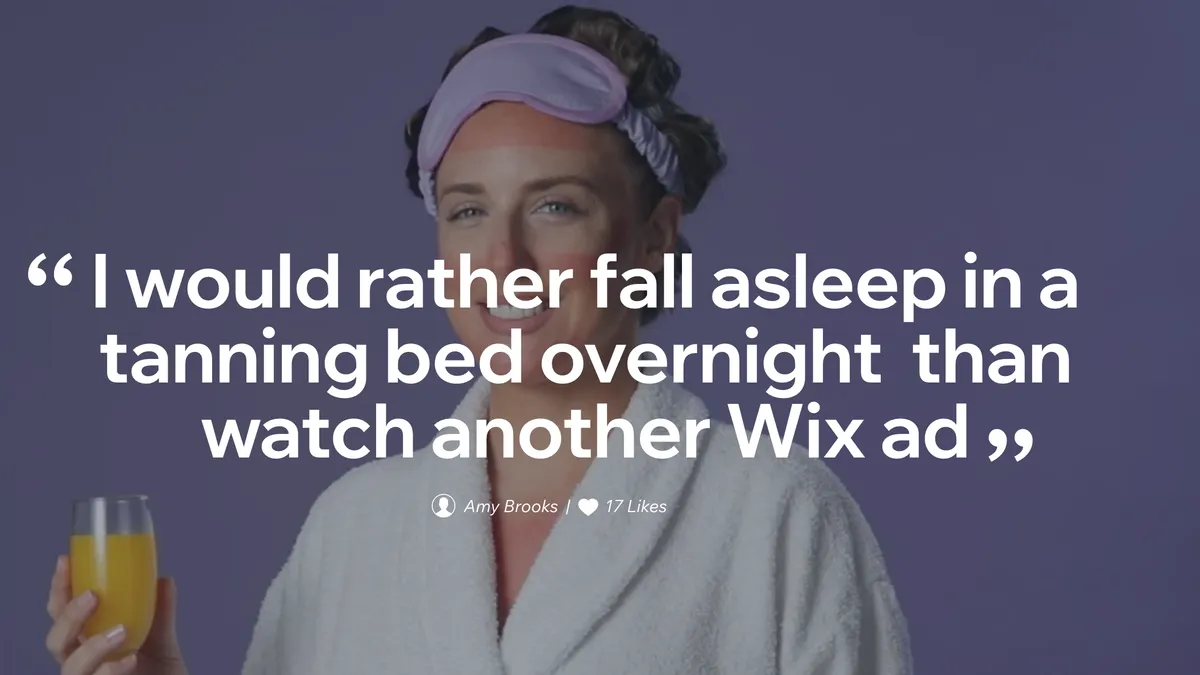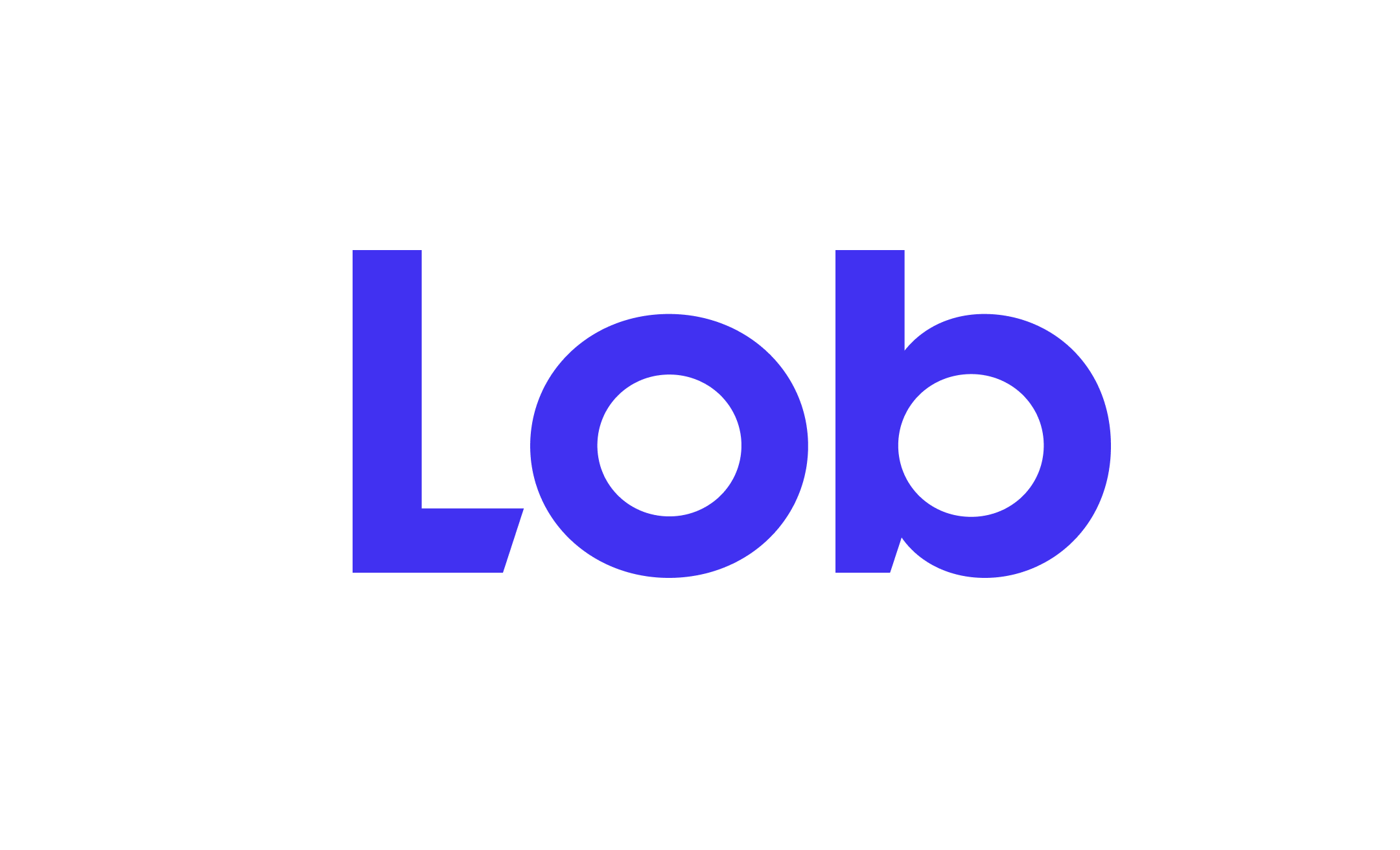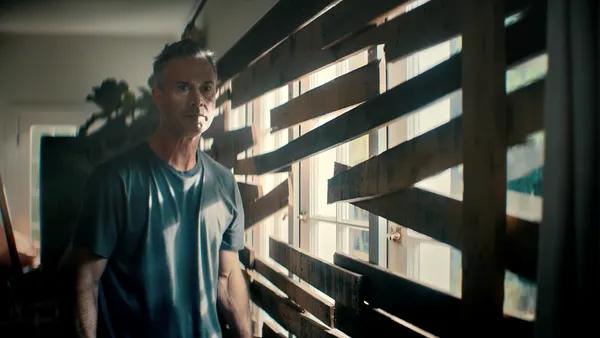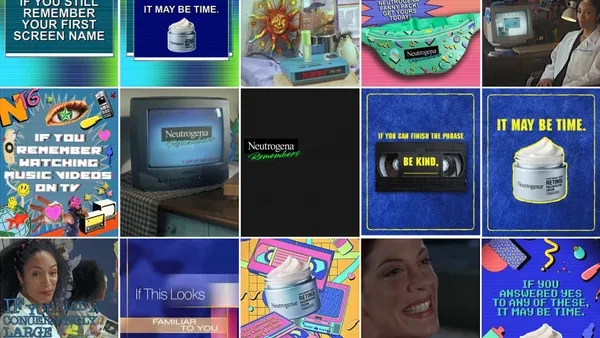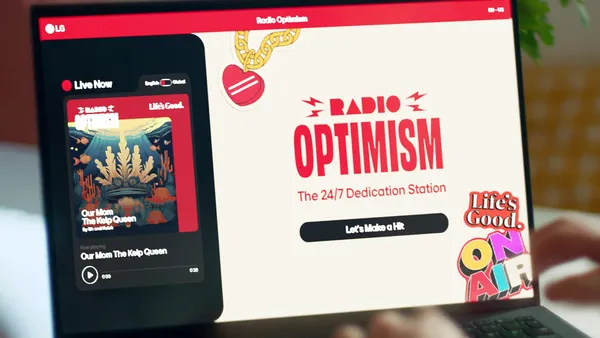UPDATE: July 29, 2020: This story has been updated to include additional details about Wix's ad frequency and to add comments from Tal Siach, the company's head of marketing.
Dive Brief:
- Wix launched a campaign built around real comments made by people complaining about overexposure to the website builder brand's ads, according to details shared with Marketing Dive.
- Shot in-house and with Wix employees, the effort spotlights outlandish activities viewers would rather subject themselves to than watch another Wix ad, like accidentally walking in on their parents having sex or falling asleep in a tanning bed overnight. The spot then proposes potential solutions Wix could offer in those situations.
- A spokesperson indicated that Wix has already seen a positive shift in viewer sentiment since debuting the campaign earlier this month. One commenter noted that they were planning to upgrade to YouTube Red —also known as YouTube Premium — the video platform's ad-free subscription service, but Wix's new ads led them to rethink the decision.
Dive Insight:
Wix's latest campaign acts as a sort of mea culpa to viewers who have grown annoyed with the high volume of ads the website builder deploys on platforms like YouTube. As other marketers have pulled back spending or cut down on ad frequency as a result of the coronavirus pandemic, viewers are exposed to fewer advertisers overall, which can make the brands that are continuing to run campaigns appear more ubiquitous.
Some companies have actually ramped up their advertising significantly to capitalize on the less noisy ad market and build up their brand equity during a down period. Masterclass, a startup that pitches educational videos guided by high-profile celebrities in sectors from architecture to acting, started bombaring YouTube and Instagram with ads to seize on locked-down consumers with more downtime in the early days of the pandemic, Digiday reported.
Wix has seen its stock price climb in recent months as more businesses shift operations online due to the pandemic, according to Axios. In emailed comments to Marketing Dive, Tal Siach, Wix's head of marketing, said the company has not recently ramped up its advertising volume.
"[It's] not a recent issue. Over the past decade, Wix has been growing at an exponential rate. As a result, our online ad spend has grown as well," Siach said. "Over time, people have seen our ads on YouTube multiple times and they have made sure to let us know."
Siach added that Wix has not lowered its ad frequency as a response to the backlash, either, but that the tweaks in messaging are better resonating with viewers.
Still, ad frequency overload is an ongoing problem for marketers that need to reach online audiences at scale, but struggle to target consumers who will be most receptive to a product or service. The mismatch can contribute to an ineffective digital media supply chain.
Global consumer products companies waste roughly $50 billion, or more than half, of their collective investments in digital marketing and trade spending, according to a study by AlixPartners last year. Beyond being ineffective, such practices can grate on consumers, driving up the adoption of ad blockers and ad-free subscription services.
Wix's campaign looks to allay those frustrations with a degree of self-awareness and humor, though it could further alienate people already put off by the brand. The scrappy approach, where the spots were shot in-house and with real employees, represents a pandemic-driven production trend that might still resonate with viewers.
Wix isn't alone in attempting to translate real consumer backlash into a marketing tool. Liquid Death, a canned water startup that's proved controversial for its edgy branding, earlier this year released an album of original metal songs with lyrics based on actual negative comments it received. Tracks included "Fire Your Marketing Guy" and "Get Slaughtered On Shark Tank."



